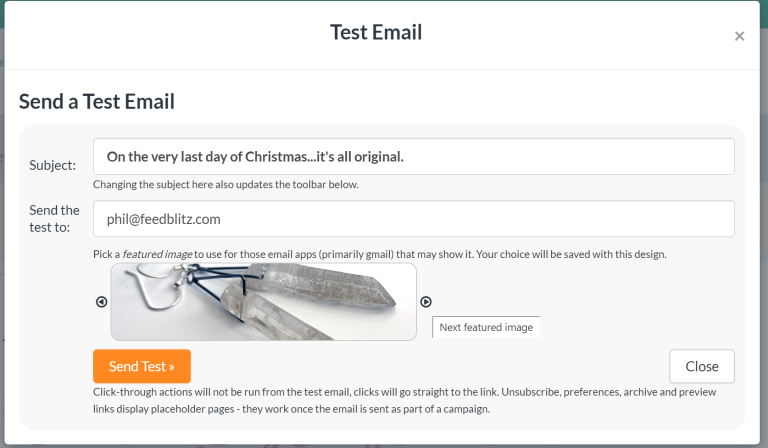If you’re trying to break into the industry, entry level writing jobs can be a good way to get your foot in the door. And yes, contrary to popular belief, you can actually make money from entry-level positions (cue gasps of shock).

We’re in our digital era—where content is king and screen time is on an Olympic sprint. And despite the low-key threat of artificial intelligence and other tech innovations, the demand for skilled writers is needed now more than ever. Businesses need captivating content (whether it’s binge-worthy blog posts or compelling product descriptions) and are always looking for fresh voices.
And that’s where you, the budding freelancer, come into play.
But of course, knowing there’s a need isn’t much help unless you know where to show up so you can fill the gap. And how do you stand out with all of the other aspiring wordsmith’s out there? That’s what we come in.
Buckle up and prepare to embark on a whirlwind tour of all things entry level writing jobs—where to find them, how to snag them, and what opportunities they could unlock for your career.
Do I Need Formal Qualifications to Secure Entry Level Writing Jobs?
Short answer? Not at all.
Certifications and degrees are helpful, and certain markets will require advanced education (such as medical writing, which requires exertise in that niche) but they don’t guarantee entry in writing world. In general, having strong writing skills is much more important than academic education.
There are many different kinds of writing (e.g. business writing, personal essays, travel writing, food writing, etc.), so as long as you understand the assignment then you’re in good shape. Your writing skills are the essential ingredients but in order to secure the ongoing paycheck, you’ll want to know how to make successful pitches too!
How Much Do Entry Level Writing Jobs Pay?
As you grasp the value of your work, learn to tailor your pieces to your target publications, and gain experience, you’ll find your negotiating power—and rates—moving upwards.
Freelance writers who publish in newspapers or magazine often are paid by the word. If this is the case for you, then your income is a balance between how fast you work and how long your commissioned pieces are.
If you write for businesses or online sites, then you may find yourself negotiating project rates. In this case, you’re looking for a win-win between their budget and your desired income.
In either case, the outlet or organization may set the rate, but that doesn’t mean you can’t negotiate. Have a good idea of what you want/need to bring in so you only take on work that aligns with your business plan and values.
When you’re just getting started as a freelance writer you may not know how long a piece will take you or what it should be valued at, so it will be difficult to set rates. It will take some trial and error to figure out what type of writing best suits you, what you most enjoy, and what price point will help you reach your income goals.
Don’t worry too much if you end up taking a job where you realize later you’ve undercharged. Take it as a learning experience and raise your rates the next time this type of job comes up.
Wondering what writers are earning in 2023? Check out this post from Make a Living Writing
Where to Find Entry Level Writing Jobs
It’s one thing to have the desire to break into freelance writing. It’s a whole other thing to actually find quality writing jobs as a beginner! The good news is there are many ways to find and secure well-paid writing jobs, even if you’re just getting started. Here are a few suggestions to try out.
1. Look for Websites In Need of Updating
Have you ever strolled around your local digital neighborhood and noticed the small businesses whose websites seem stuck in the 90s? Or perhaps, you’ve stumbled upon those big businesses with blog sections that look about as lively as a tumbleweed town.
It’s like spotting a cute fixer-upper house and you’re inspired to breathe life into the outdated landing pages or blog posts.
You’d be amazed at how many companies have unoptimized About Pages or are missing testimonials or company stories. It’s probably on their to-do list, but it can be difficult to get to these details!
So here’s a thought: Why not inqure about it? Ask if they could use a freelance writer to update their website a bit. Include a few of your writing pieces that are similar to their industry if you can, it will give them confidence that you’re up to the task. If you don’t have relevant samples then you could mock up some examples to showcase your skills and how you can help.
You never know, they might be waiting for someone like you to revitalize their website.
2. Utilize Freelance Writing Sites
There is a lot of debate about platforms such as Upwork or Fiverr. It’s not for everyone. However, it can be a good starting point to get experience and build your writing portfolio.
Here are the pros: You can establish your profile and highlight your specialties. You can offer an array of services at different rates. Sites like these allow clients to reach out and for freelancers to bid on jobs. You won’t get everything you go for, but since sites like these are largely a numbers game, if you pitch enough eventually you’re bound to get something.
However, these platforms charge a service fee on each project, and they prefer if you keep communication within the platform rather than taking it private. Working with clients from these platforms may require time and perseverance to secure those big projects that offer a generous paycheck.
We recommend considering these types of platforms as stepping stones.
3. Work with Marketing Agencies
Agencies can be lucrative for writers, and they work especially well if you’d rather not deal directly with clients or find jobs yourself. Marketing agencies handle the administration and account management (for the most part) and pass the writing work to you as it comes in.
By searching online for marketing agencies within your niche, you may be surprised at how many work with freelancers and are looking for help in the near future. Agency work can be inconsistent but you’ll also likely gain a lot of experience on many different types of writing projects in a short amount of time.
4. Network with Other Freelance Writers
It’s not about what you know but who you know, right? Established freelance writers will tell you most of their high-paying work is generated from referrals and netowrking.
Whether it’s in person or on social media, be as proactive as possible in reaching out to freelance writers to gain fresh, new opportunities.
5. Use Reliable Job Boards
While pitching can often secure you higher-paying jobs, it can be intimidating and overwhelming. You may choose to apply to postings on job boards instead, which is a bit more passive.
The advantage with job boards is it puts you in control when it comes to filtering the type of writing job you want and the kind of company you’d love to work for. Some businesses will offer full-time positions while others will be seeking out freelancers so you can search, sort, and filter down to exactly what you want.
Tips to Kickstart Your Writing Career as a Beginner
So now that we know where to find your first writing jobs and you have a bit of an idea for how much you can expect to be paid, here are some additional tips to help you land that job.
Create a Writing Portfolio
Most clients will want to see some writing samples ahead of time. You’re probably thinking, “I’m new! I have nothing published!”
Fear not, there are other ways to showcase your skills, even if you’re just showing samples or mock-ups that haven’t actually been published.
Putting together a writing or social media portfolio shows the prospective client what you’re capable of and demonstrates your competence to do the job well.
We recommend creating your portfolio online and sending a link to specific relevant pieces rather than to the entire package. This will help them see you as a professional.
Dedicate Yourself to Continual Improvement
Just because you’ve secured a writing job doesn’t mean the learning comes to an end. There are always things to learn, ways to improve, and techniques to try.
You may begin in blogging and realize you could earn more if you also add in search engine optimization (SEO) to your offer. And once you learn SEO, then you see how copywriting can make you even more valuable to clients. As you grow and gain experience with one type of writing, you’ll see even more stepping stones to keep improving.
Personalize your Pitches
If you’re reaching out to clients via email or LinkedIn, then it will benefit you to find ways to stand out in a busy inbox.
We’d recommend keeping your opening paragraph as concise as possible (you have something like seven to keep someone reading).
Also, do your homework so you can mention things in your pitch that resonate with the recipient. Who doesn’t love an email where the sender actually has some idea of who they’re messaging? It will make a much bigger impact than sending a copy-paste generic cold pitch, trust us. Of course you don’t want to cross the line and come off as creepy—keep it professional, yet personable.
We won’t leave you hanging, of course. Fill in the form below and we’ll send you our pitch checklist, free!
Summary
It’s an incredible feeling when you get that first paying writing job but here’s something even more exciting: Entry level writing jobs aren’t the end of the road for writers, they’re only the beginning.
This is your springboards for getting into the industry and opening up doors to MORE—more opportunities, more connections, more experiences, and more money.
So, here’s to finding jobs that fit your skills, learning how to value your writing, how to negotiate, and how to grow your portfolio one sample at a time.
Keep writing, keep learning, and remember—every master was once a beginner.










